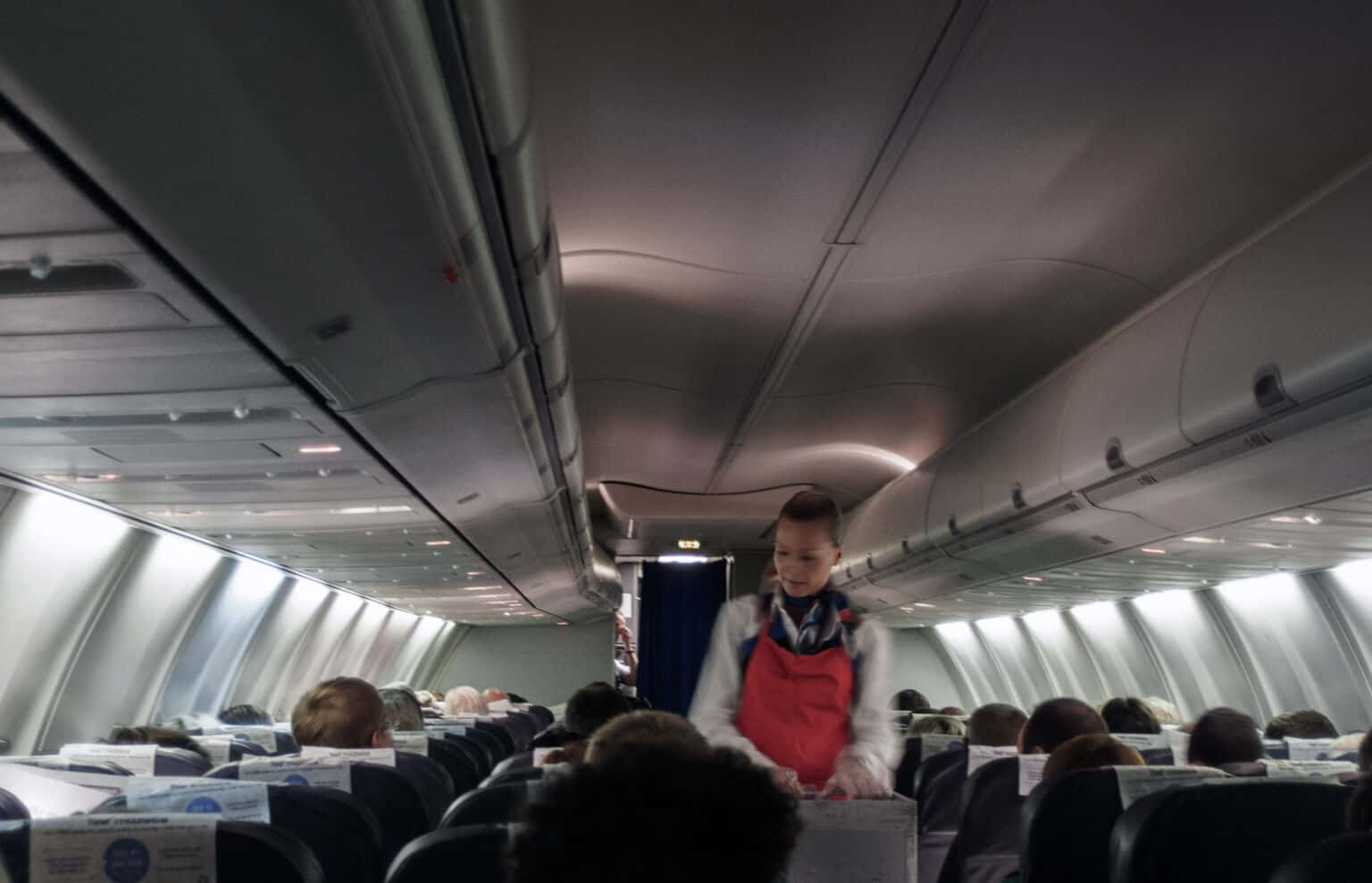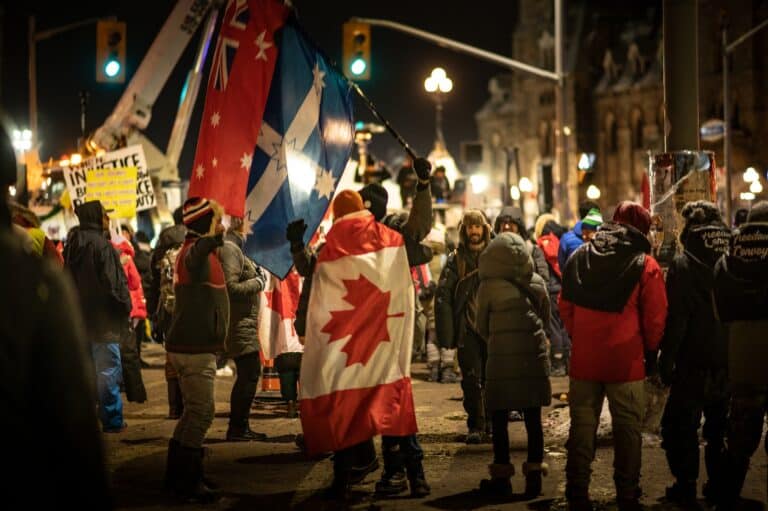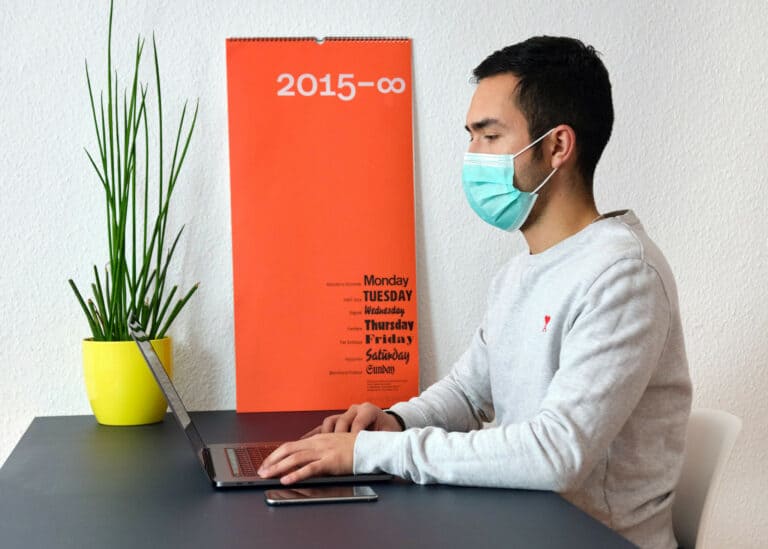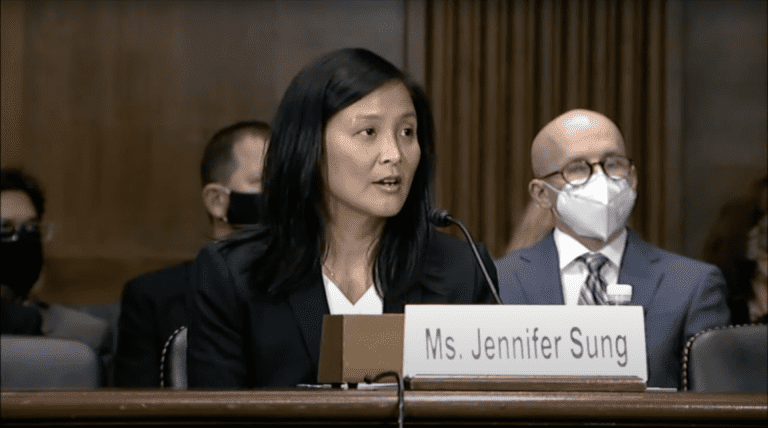
Gwendolyn Gissendanner is a student at Harvard Law School and a member of the Labor and Employment Lab.
In May, a passenger on a Southwest Airlines flight to San Diego punched a flight attendant after she asked the passenger to wear a facemask. In early August, a drunk passenger groped two women flight attendants and punched a male flight attendant. The crew created a makeshift restraint out of duct tape to stabilize the flight, only to later be suspended from employment. As recently as late September, a JetBlue passenger attempted to storm the cockpit and began choking a flight attendant. These extreme instances of workplace violence, while once rare, have become increasingly common throughout 2021.
During the peak of these encounters, the Federal Aviation Administration reported 12 unruly passenger incidents for every 10,000 flights. While efforts by commercial airlines and the FAA—like a public awareness campaign, temporary zero-tolerance policies, and increased fines for FAA violations—decreased that ratio to 6 incidents per 10,000 flights, the rate is still double what it was in 2020. Most strikingly, of the unprecedented 4,385 incidents, two-thirds related to mask mandates.
While airlines call on the FAA and DOJ to issue penalties and prosecute unruly behavior, the FAA seeks to place the burden on airlines to reduce violence. Additionally, existing personnel, such as air marshals, have proven insufficient to address disruptions on each flight (there are nearly 18,000 flights a day but only 3,000 marshals). The FAA’s inability to investigate the number of incidents, airlines’ hesitance to address the violence, and minimal trained personnel lead to an alarming outcome: prolonged impacts on bodily and workplace safety for flight attendants.
Flight crews are “exhausted, physically and emotionally” and many feel they have nowhere to turn as they face discipline for refusing to enforce mandates, suspension when they do, and a lack of support from their airlines when filing complaints. This uptick in violence comes as another blow to an industry already dealing with the labor shortages caused by massive layoffs in response to travel restrictions and workplace Covid exposures and deaths.
Unfortunately, these concerns parallel the situation in all service-based industries as the impact of enforcing mask mandates fall directly on women-dominated professions and especially low-wage, minority employees who become the subject of verbal, sexual, and race-based abuse. For flight attendants specifically, 85% of those in the profession reported incidents with unruly passengers in 2021, with 6 in 10 incidents including racist, sexist, or homophobic slurs. This uptick in harassment even led to increases in flight attendant enrollment in self-defense classes—matched only by post-9/11 enrollment.
On September 23rd, the House Transportation and Infrastructure Committee held a hearing titled “Disruption in the Skies: The Surge in Air Rage and its Effects on Workers, Airlines, and Airports” to examine possible solutions to hostility in the air. Testimony from Sara Nelson, President of the Association of Flight Attendants-CWA, AFL-CIO, highlighted the stakes of passenger defiance. She explained that these disruptions decrease the capacity of flight attendants to address medical emergencies, sight coordinated terrorist attacks, and address equipment errors. Importantly, she highlighted the traumatic impact of these incidents on professionals. The union surveyed more than 5,000 members in July and the results revealed that 58% of flight attendants dealt with more than 5 incidents of unruly passengers and nearly 1 in 5 experienced a physical assault.
Current mechanism to address these concerns continue to fall short of addressing violent encounters. The FAA has levied more than $1 million in fines for these violations in 2021, but the Department of Justice has not met this pace with criminal investigations. The incongruencies between the FAA and other agencies gives insight to the major issue with enforcement: political stalemate. During the hearing, politics often overshadowed flight attendants’ concerns. Democrats called for harsher enforcement for FAA violations and criticized government leadership in regions questioning the seriousness of the disease; Republican representatives questioned enforcement procedures and highlighted ways government policies exacerbated hostile environments. Despite political debate, the following recommendations emerged from the hearing:
Calls from flight attendants and airlines for harsher penalties and increased prosecution of air rage incidents
- This request would increase penalties for misbehaving passengers but could also create overcriminalization concerns for passengers facing mental health episodes—and thus acting without the requisite intent to cause harm.
Requests from unions to increase messaging about federal penalties for flight disruptions by FAA, DOT, and TSA personnel
- This recommendation calls for airport-wide messaging so that everyone, from flight crews to concessionaries to fellow passengers, can help report hostile behaviors before unruly passengers board planes.
Calls to create cross-airline transparency of do-not-fly lists and expansion of the the federal no-fly list
- As it stands, passengers banned from airlines are currently free to book with competitors. Reciprocity between airlines and inclusion of offenders on the federal do-not-fly list may create a greater deterrent to hostile environments on planes. This solution, however, creates the greatest concerns for discrimination. No-fly lists historically perpetuate unwarranted racial and religious profiling, especially against Arab Americans and those from Muslim-majority nations. This solution must include mechanisms for hearings, appeal, and stop-gaps to avoid further racial and religious marginalization. In addition, numerous airlines cite concerns about passenger privacy, as well as antitrust violations, at the prospect of sharing lists cross-airline.
Create better de-escalation tactics for mask enforcement
- Some airlines increased their de-escalation training and others crafted specific tools to place flight attendants out of harm’s way and avoid embarrassment. United Airlines, for example, adopted policies to instruct flight attendants to pass out cards with the following language: “you’re going to be banned from flying United Airlines if you do not put your mask on.”
Calls to passengers to sue others who disrupt their flight
- Airline personnel believe their concerns will become more visible if passengers who face delays, canceled flights, loss of income, and lost vacation time based on disruptions, sue individuals causing the disruptions and airlines for failing to equip personnel with tools to ensure flight safety. This public pressure-based tactic, while possible, still focuses on individualized harm, and promises to be a lengthier solution to an immediate problem.
Requests from union members to minimize onboard food and beverage services until the CDC declares the pandemic over
- Because most mask-related incidents result from passengers removing their face coverings to eat or drink and refusing to replace them, flight attendants seek to decrease services altogether. In addition, 58% of flight attendants surveyed reported alcohol contributed to disruptions. Many believe halts to in-flight alcohol sales will increase in-flight safety.
Pleas from flight attendants asking their airlines to address labor shortages
- Throughout the pandemic, the profession saw a nearly 15% decrease in employment. Longer shifts, with even less staffing, make it increasingly difficult for flight attendants to stay alert and maintain safety. The AFA believes increasing staffing will allow for better responses to issues and sufficiently address fatigue.
In the short term, adopting de-escalation techniques, increasing support for flight attendants, and minimizing food and beverage services appear to be amongst the most viable solutions. In the long term, airlines and the federal government must reflect on the identities and circumstances of those facing the burden of enforcing federal mandates and increase safety, job security, and reporting mechanisms to decrease abuse.










Daily News & Commentary
Start your day with our roundup of the latest labor developments. See all
July 3
California compromises with unions on housing; 11th Circuit rules against transgender teacher; Harvard removes hundreds from grad student union.
July 2
Block, Nanda, and Nayak argue that the NLRA is under attack, harming democracy; the EEOC files a motion to dismiss a lawsuit brought by former EEOC Commissioner Jocelyn Samuels; and SEIU Local 1000 strikes an agreement with the State of California to delay the state's return-to-office executive order for state workers.
July 1
In today’s news and commentary, the Department of Labor proposes to roll back minimum wage and overtime protections for home care workers, a federal judge dismissed a lawsuit by public defenders over a union’s Gaza statements, and Philadelphia’s largest municipal union is on strike for first time in nearly 40 years. On Monday, the U.S. […]
June 30
Antidiscrimination scholars question McDonnell Douglas, George Washington University Hospital bargained in bad faith, and NY regulators defend LPA dispensary law.
June 29
In today’s news and commentary, Trump v. CASA restricts nationwide injunctions, a preliminary injunction continues to stop DOL from shutting down Job Corps, and the minimum wage is set to rise in multiple cities and states. On Friday, the Supreme Court held in Trump v. CASA that universal injunctions “likely exceed the equitable authority that […]
June 27
Labor's role in Zohran Mamdani's victory; DHS funding amendment aims to expand guest worker programs; COSELL submission deadline rapidly approaching